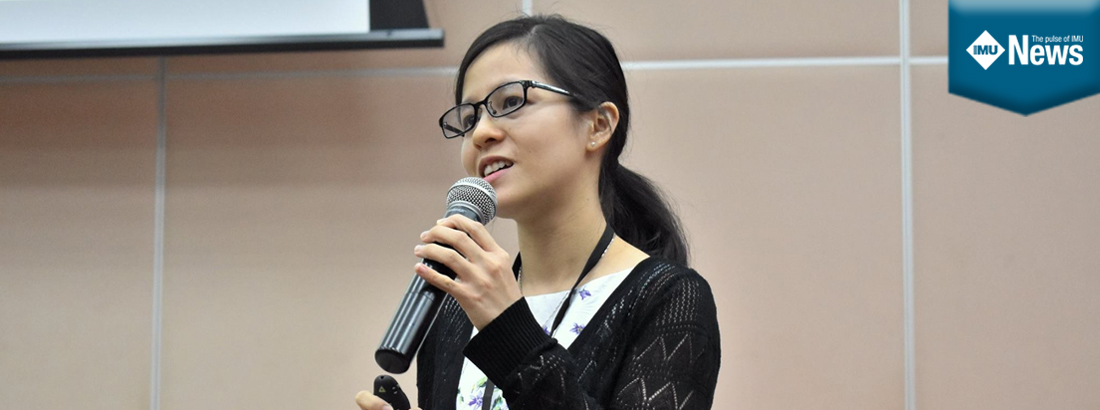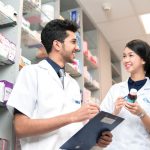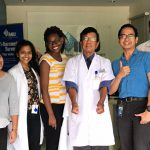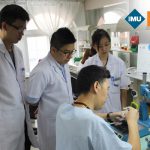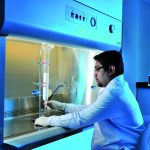At the ISBS Symposium 2018, 14 participants showcased their findings and works in various interesting research studies by giving oral presentations. All the presenters spoke remarkably well about their research findings, and it was definitely a good learning experience for the audience as well as the presenters. Four of these participants who are currently Biomedical Science students at International Medical University (IMU), share their experience presenting at the symposium.
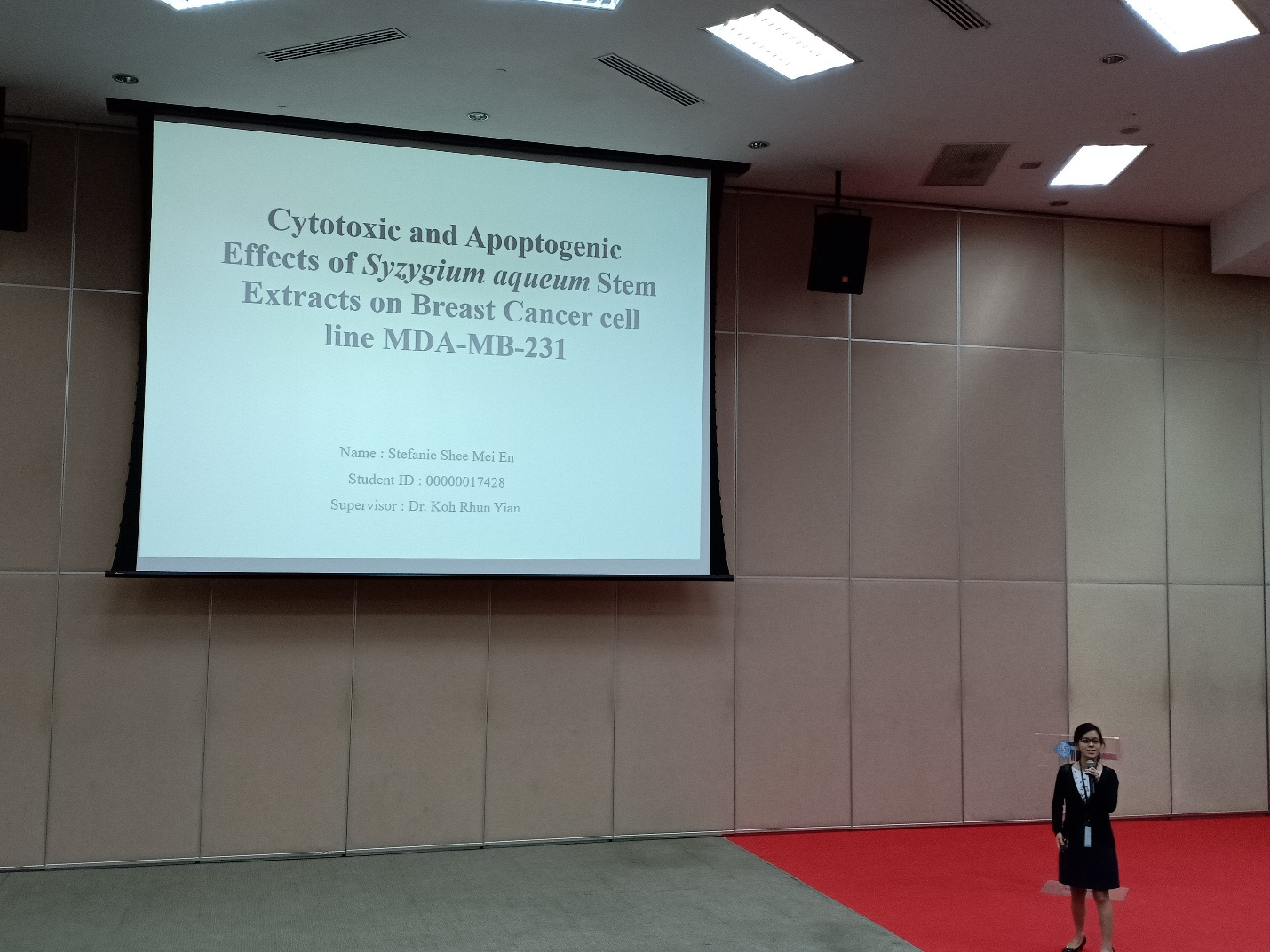
| Stefenie Shee Mei En (3rd Prize Recipient of the Oral Presentations) |
|---|
| Three years ago, when I first stepped into IMU as a biomedical science student, it never crossed my mind that I will be standing at a symposium to present a research project. My mind at that time was just fixed on getting a degree and to yield myself a decent job in a healthcare facility, that’s all. As I venture further in the journey as a biomedical science student, I realised that the human body seems so easy yet at the same time hard to comprehend. We studied theories for exams, yet amidst the theories, I developed many “whys” and “hows”, and most of my questions were never answered. Of course, I would like to emphasise that it is not because our lecturers were ignorant. In fact, our lecturers were very kind and patient without showing forth any frustration towards our never-ending questions. It’s just that the research on human body is still so limited. That is why up till today there are still so many things of the human body that we including worldwide researchers cannot understand. I was eager to find answers to answer my doubts and that is how I became interested in research. For my final project, I was given this opportunity to participate in an anti-cancer research with the involvement of natural products. All the while, we thought natural products are just merely some sorts of “supplements” to boost our body’s immune system. To use it for anti-cancer treatment? No way, it never crossed my mind anyhow. But after my final year project, I was surprised to see this plant “Syzygium aqueum” in fact elicited cytotoxic and apoptogenic effects on a breast cancer cell line and I was eager to tell everyone that natural products actually work in killing cancer cells. Later on, I received a message from my supervisor encouraging me to participate in the ISBS 2018 symposium: Molecular Diagnostics and Possibilities. Although I would love to share the benefits of Sygyzium aqueum at the symposium, yet at the same time I was also doubtful, because never had I actually participated in any sort of symposiums and I don’t really have any great confidence presenting at the symposium. However, after some encouragement from my supervisor and family members, I gave in and registered myself, as an oral presentation speaker, and I did not regret it. It was a great opportunity that I was able to participate at this symposium. This symposium was a success and the crew should be given credit for this success. Once again, thank you very much for your efforts and do keep the good work up! The talks given by all of our presenters, whether it is from the professors or the participants were interesting and I was very impressed by all of their projects. All these gave me further insights to on-going projects and the current trends of the various researches going on. Once a student myself, I understand how it is to have stage fright and nervousness while standing in front of various competent and experienced researchers. But through this symposium itself I learnt how to overcome all these and to boost up my confidence. Even though I can’t tackle everything in one go, but at least in this symposium itself, I gain some experiences that could be useful to me in the future. I still have a long-way to go and much more things to learn. But one thing I know is that this symposium gave me the first step to improve myself as I venture into the world of research. |
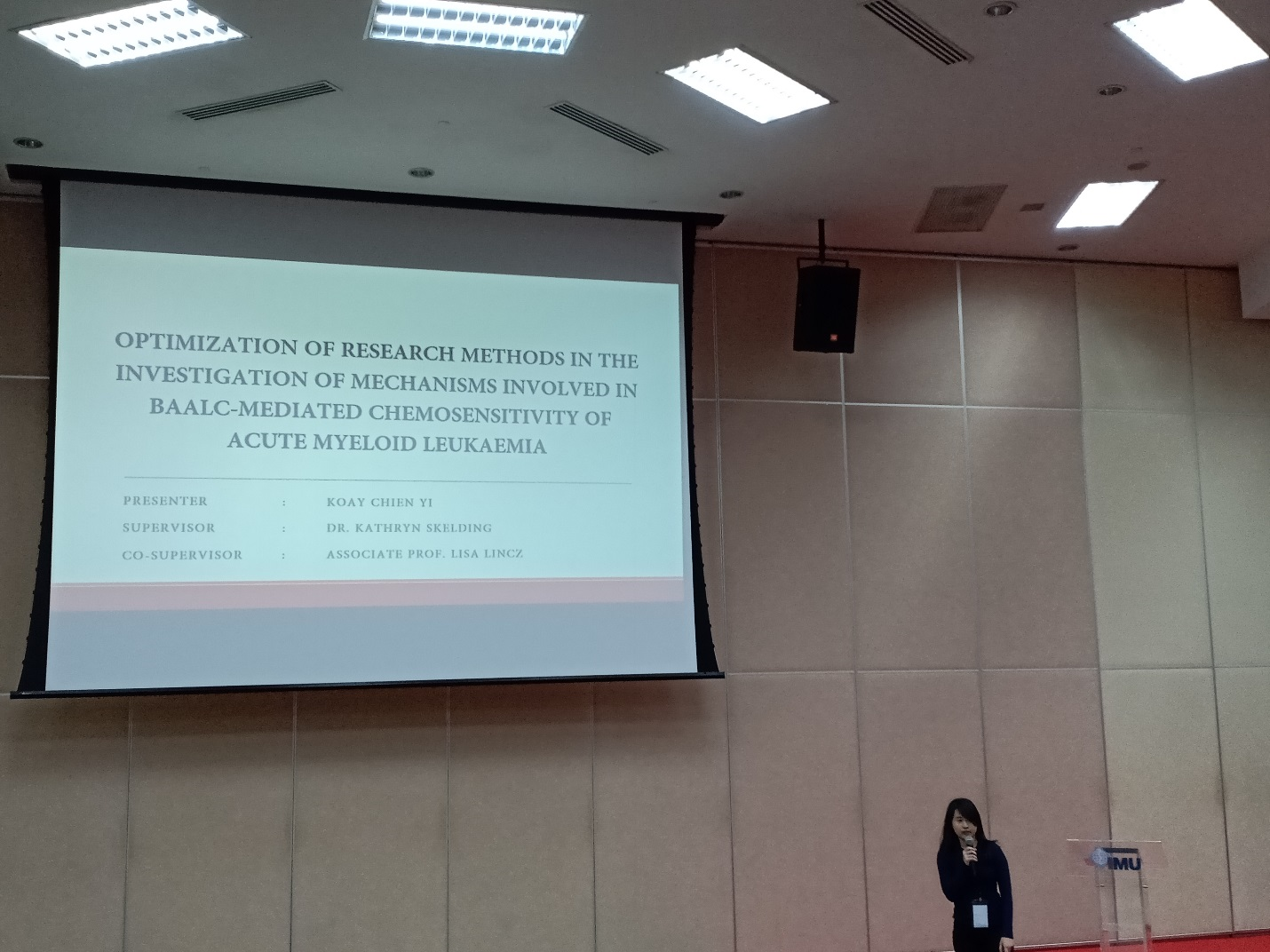
| Koay Chien Yi |
|---|
| It’s evident that evolution is a natural force that shaped everything into what it is today, from the diversification of living things to the emergence of new diseases. As evolution is inevitable, the scientific community has been racing against time to find new therapies and diagnostic tools to combat the emergence of new diseases that arose as a consequence of evolution. Just as the saying ‘no man is an island’ goes, no one man can unravel the secrets behind every single disease there is. Therefore, a crucial function of a scientific community in any field is to be a platform that allows for the sharing of information and knowledge that would aid in the investigation of different diseases by researches across the globe, and one of the channels that functions as such is a symposium. Though International Medical University’s Society of Biomedical Science was only established for nearly one and a half years, the organising of a symposium themed “Molecular Diagnostics : Promises and Possibilities” by a group of students with minimal experience can be said to be a success, as it brought people of different universities to participate in sharing their research findings. It was an insightful event as different speakers and presenters shared their knowledge on recent advances in molecular diagnostics and research findings that has brought us one step closer to moving from bench to clinics. From Dr Saira Bahnu’s talk on recent advances in molecular oncology surrounding lung cancer, it is evident that what we now know of the relation between lung cancer and genetic abnormalities is only but a drop in the ocean, as there are a lot more to be learned about this disease in order to move from research to clinical diagnostics. On top of that, Prof Cheah Yoke Kqueen’s talk on the challenges in molecular testing of lung cancer enlightened me on the complexity and difficulty in the diagnostic stage. I was particularly intrigued by Prof Cheah’s sharing on the recent advancement of diagnosis through liquid biopsy. In comparison with surgical biopsies, a liquid biopsy offers a simple and non-invasive alternative that enables doctors to discover a range of information about a tumour through a simple blood sample. This type of biopsy offers tolerability and convenience, but the biggest benefit lies in its potential to detect disease progression or treatment resistance long before it would trigger clinical symptoms or appear on imaging scans. On top of that, to have had the opportunity to learn about research topics on acute myeloid leukaemia chemoresistance has also been one of the key highlights of the event. As an individual aspiring to pursue a long-term research career, participating in this event as an oral presenter, even to a small degree, has instilled in me courage and public speaking skills that I believe has better equipped me for a career in biomedical research. All in all, participating in this symposium has taught me a lot on the challenges in diagnosing diseases on a molecular level, and the possibilities and promises recent advances in the field of molecular diagnostics hold. |
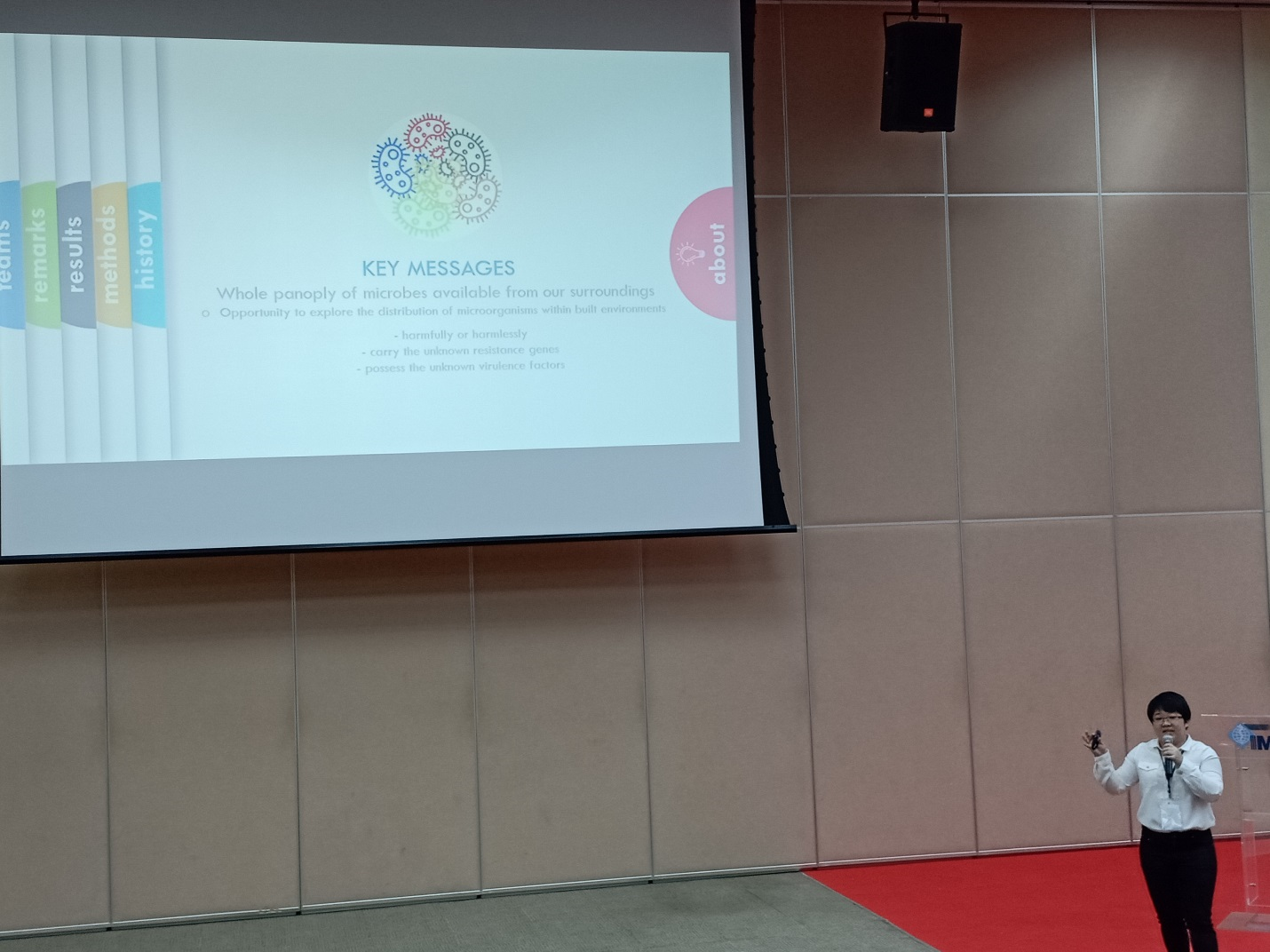
| Ma Pei Yee |
|---|
| The symposium was held by IMU Society of Biomedical Science (ISBS) on 25 August 2018 which was meaningful and fantastic. It was the first time ISBS organised this event and the theme of the event was Molecular Diagnostics- Promises and Possibilities. It cannot be denied that it was a very successful event where there were over a hundred researchers and students from different universities and IMU students participating in this memorable event. Symposium is an event for all the medical related field professions to exchange the latest research knowledge which have or have not been published to the world. The title of my presentation for this symposium was the presence of the presumptive Pseudomonads Staphylococcus and E. coli in IMU with unexpected genotypic resistance towards carbapenem and methicillin. This project involved a team of members at IMU which include seniors from different cohorts. We continued the project of our seniors and thus, I was confused about the project at the beginning. Luckily, my supervisor guided us patiently and explained the whole project to us. My supervisor also encouraged me to be the speaker of the project at this symposium to gain more knowledge and experience from it. I was nervous and anxious at the beginning because many of the speakers were able to introduce their project and results very fluently. Some of the speakers felt nervous too but they were still make the audience understand the results of the research. Although it was the first time for me to face over a hundred people to give a speech, I did my best to explain the results I gained from my research. From this, I understood nervousness cannot help me much and excessive nervousness will cause people the inability to present properly. The most important thing is let yourself to relax no matter how many people you are facing. The only thing that I have to do during the presentation is just focus on what I want to share with others and whether they totally understand what messages I want to deliver. When audience asked questions about the research, I did not make the best preparation to answer all the questions. That is when I realised that my weakness was answering people’s questions. This symposium allowed me able to observe my weakness and strengths during the presentation. From this experience, I feel more confident for the next symposium or presentation. I feel glad to have a good research supervisor, Dr. Louis Liew Yun Khoon to guide me throughout the whole project, both during research and during preparations for my presentation. He showed me his knowledge and experience especially when doing the powerpoint slides. Besides the techniques that are needed in research, he also taught me how to prepare a high standard powerpoint slides which can easily attract audiences’ attention. Besides, I also have to thank my research team members including Dr Dinesh, Rachel, Qin Qian and also seniors who guided me and gave their cooperation during the research. I hope ISBS can hold the event every year to build a bridge between all research lovers. |
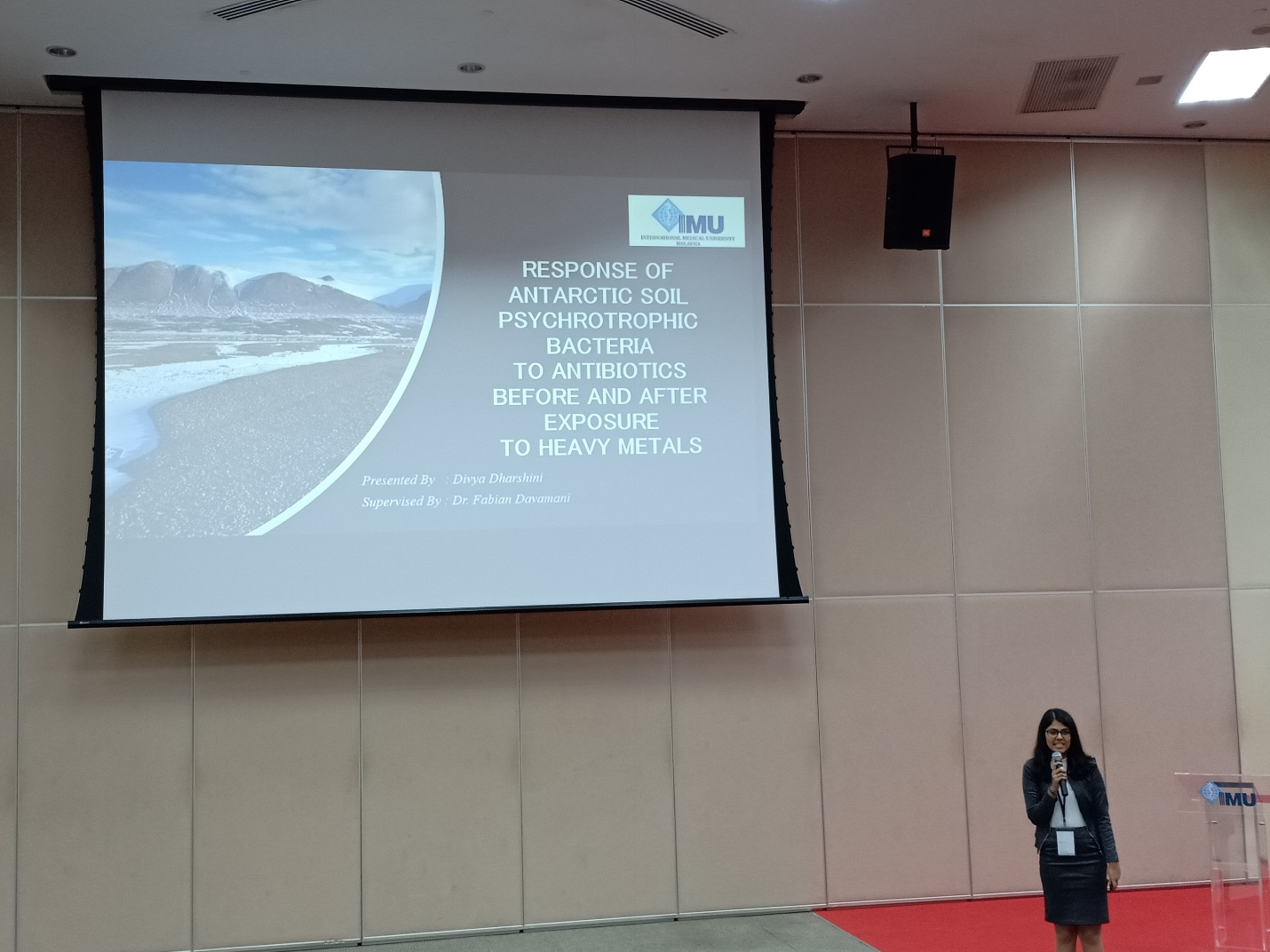
| Divya Dharshini |
|---|
| As I was looking for an internship, I had an opportunity to do an oral presentation on my final year research project entitled ‘Response of Antarctic psychrotrophic bacteria to antibiotics before and after exposure to heavy metals’, at the very first symposium organised by our very own International Society of Biomedical Science (ISBS) of IMU. This research is part of the Antarctic flagship project organizsed by the Ministry of Science, Technology and Innovation (MOSTI) in collaboration with the British Antarctic Survey (BAS) to obtain the samples from Antarctic soil. Preparation for this symposium was interesting as I have improved my communication skills and my style of delivering scientific content while preparing for this oral presentation. I have also learned ways to communicate science to people of different backgrounds by listening to the presentors in presenting their research findings. The exchange of ideas by receiving constructive feedback on my research project also helps me to build a scientific paper to be published. The symposium was also packed with two scientific talks which stimulated more questions from the crowd. Overall, this symposium provided me with the firsts of memorable and rewarding experience as a presenter. It was indeed an invaluable experience to steepen up my learning curve and be inspired by the latest breakthroughs. Lastly, I would like to thank IMU, the biomedical science programme, my research supervisor, Dr Fabian Davamani and to my fellow peers for guiding me throughout the course of this research journey. |
Related article: First ISBS Symposium Spreads Awareness on Importance of Molecular Diagnostics




